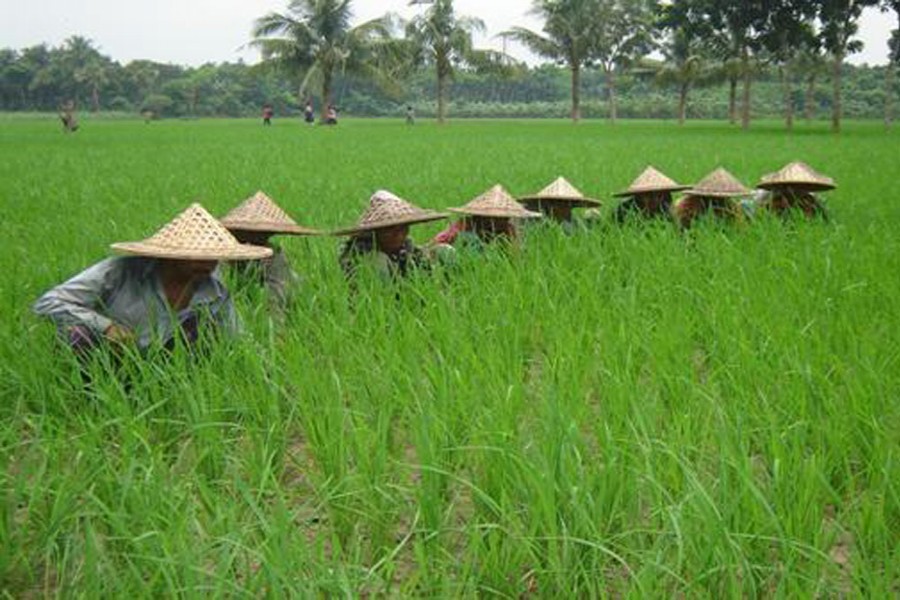Agriculturists see high prospects in interim BARI Sarisa-14 cultivation

Published :
Updated :

Agriculturists at a farmers’ field day event have said cultivation of short duration and high yielding variety of BARI Sarisa-14 between the time of Transplanted Aman rice and Boro rice farming is highly profitable.
Rangpur Regional Agricultural Research Station (RARS) of Bangladesh Agricultural Research Institute (BARI) organised the event at Burirhat in Rangpur to demonstrate technology for ‘Production of breeding seeds of BARI Sarisa-14′ on Tuesday afternoon.
Senior Scientific Officer of BARI at RARS Agriculturist Dr. Sarker Md. Abu Hena Mostafa Kamal presided over the event participated by 100 male and female farmers.
Principal Scientific Officer of BARI at RARS Agriculturist Dr. Ashish Kumar Saha addressed the event as the chief guest.
Senior Scientific Officers of BARI at the RARS Agriculturist Dr. Md. Obaidul Haque and Agriculturist Dr. Md. Harun-Ar-Rashid, its Scientific
Officer Agriculturist Md. Bikash Sarker and Gangachara Upazila Additional Agriculture Officer Agriculturist Shahnaz Pervin addressed.
The agriculturists apprised the farmers of cultivation technology of short duration (75 to 80 days) BARI Sarisa-14 variety of mustard, giving them practical knowledge on production of its quality seeds.
The yield rate of BARI Sarisa-14 variety is higher than that of other
varieties and it is produced between 1,400 kilogram and 1,600 kilogram from per hectare of land and brings lucrative profits for farmers.
Agriculturist Dr. Haque said farmers can easily cultivate BARI Sarisa-14 on the same land where they cultivate two crops of Transplanted Aman rice and Boro rice annually to increase crop production.
“The farmers can earn more profits by cultivating BARI Sarisa-14 during the gap period between cultivation of Transplanted Aman rice and Boro rice when the crop land remains fallow,” he added.
Agriculturist Shahnaz said the Department of Agricultural Extension has
accelerated its ongoing activities for expanding cultivation of BARI Sarisa-14 at farmers’ level.
Dr. Saha said farmers cultivate only T-Aman rice and Boro rice on large area of medium high land in Rangpur division where three crops can be cultivated easily by adopting the ‘Transplanted Aman rice-Mustard (BARI Sarisa-14)-Boro rice cropping pattern.’
“Cultivation of BARI Sarisa-14 between the period of Transplanted Aman rice and Boro rice will increase production of mustard seed along with reducing import of edible oil which will save huge foreign currency,” he said.
“BARI Sarisa-14 contains more edible oil and its straws can be used as cooking fuel to resolve fuel problems to some extent,” he added, reports BSS.


 For all latest news, follow The Financial Express Google News channel.
For all latest news, follow The Financial Express Google News channel.